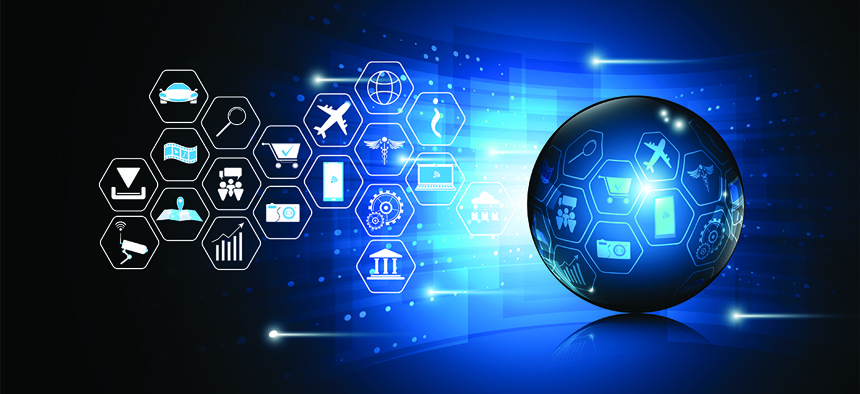GAO Lists Pros and Cons of Internet of Things for Congress

Supphachai Salaeman/Shutterstock.com
The agency examined the costs and benefits of the growing market, per a congressional request.
Congress has recently been interested in the internet of things—a term for a connected network of devices and sensors—and tasked a federal watchdog to investigate its costs and benefits.
The Government Accountability Office's findings? That the internet of things stands to benefit consumers and the public sector. High-tech baby clothes, for instance, could help notify parents of breathing irregularities. Municipalities could install sensors across cities to better understand utility usage—smart trash bins could alert trash crews when they're overflowing, so teams aren't deployed unnecessarily.
But there are challenges, too, some of which might require congressional monitoring. For one, if not protected, sensors continuously gathering information on a person or a city could easily be infiltrated, and that information could be used for identity fraud or to plan attacks.
» Get the best federal technology news and ideas delivered right to your inbox. Sign up here.
There are other logistical challenges, the report found. Devices hitched to a network may not always have space for a large power source and are occasionally installed in hard-to-access places, "making it hard to replace a power source like a battery."
Also, the security and privacy standards governing the complex internet of things are still evolving and not widely adopted, GAO found. The National Institute of Standards and Technology has a catalog of security and privacy controls over information systems, which is a start. But some devices don't have the ability to upgrade software regularly, and many IoT solutions rely on cloud computing, which requires "a transfer of information and system components to the cloud provider that would otherwise be under the company's direct control."
Privacy concerns are very real, the report emphasized. Fitness trackers know when and how much users work out, when they sleep and what their current heart rates are; in theory, companies could use this information in "ways the customer did not anticipate," the report warned.
These concerns are compounded by the fact there's no one federal agency responsible for IoT oversight, the report noted. As of now, regulations are fragmented by sector, so the Federal Aviation Administration handles drones, and the National Highway Traffic Safety Administration examines the rules surrounding self-driving cars, for instance.
Even the director of national intelligence worried foreign intelligence might tap into the internet of things for "identification, surveillance, monitoring, location tracking, and targeting for recruitment, or to gain access to networks or user credentials," the report noted.
NEXT STORY: A Drone Inspects a Bridge. Now What?





